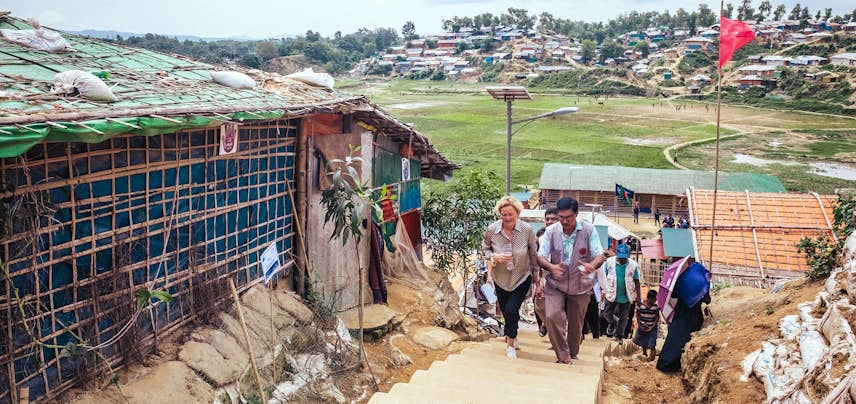Emergency Aid
In preparation for possible humanitarian emergencies, Luxembourg reserves about 75% of its humanitarian aid budget for emergencies. This aid is allocated according to need and with a particular focus on the most vulnerable people, taking account of several indicators such as the classification of humanitarian crises, risk management indices (INFORM) and the ECHO and OCHA indicators for forgotten crises.
In June 2019, Minister Lenert paid a working visit to Bangladesh, during which she visited Cox’s Bazar, the world’s largest refugee camp, which hosts Rohingya who have fled violence.
With regard to the Syrian crisis, the Luxembourg government was able to honour its pledge to make a donation and disbursed EUR 7.5 million. Apart from Syria, Luxembourg has provided humanitarian aid through its partners to South Sudan, the CAR, Iraq, the Occupied Palestinian Territories, Mali, Niger, the DRC, Somalia, Afghanistan, Colombia and Yemen. West Africa, the Horn of Africa and the Great Lakes region have also received Luxembourg aid through a multi-country approach. Other countries also received aid, such as Laos, Ethiopia and Cameroon. The implementation of emergency humanitarian aid in these countries and regions was carried out through projects by Luxembourg NGOs and contributions to UN agencies and the ICRC.
